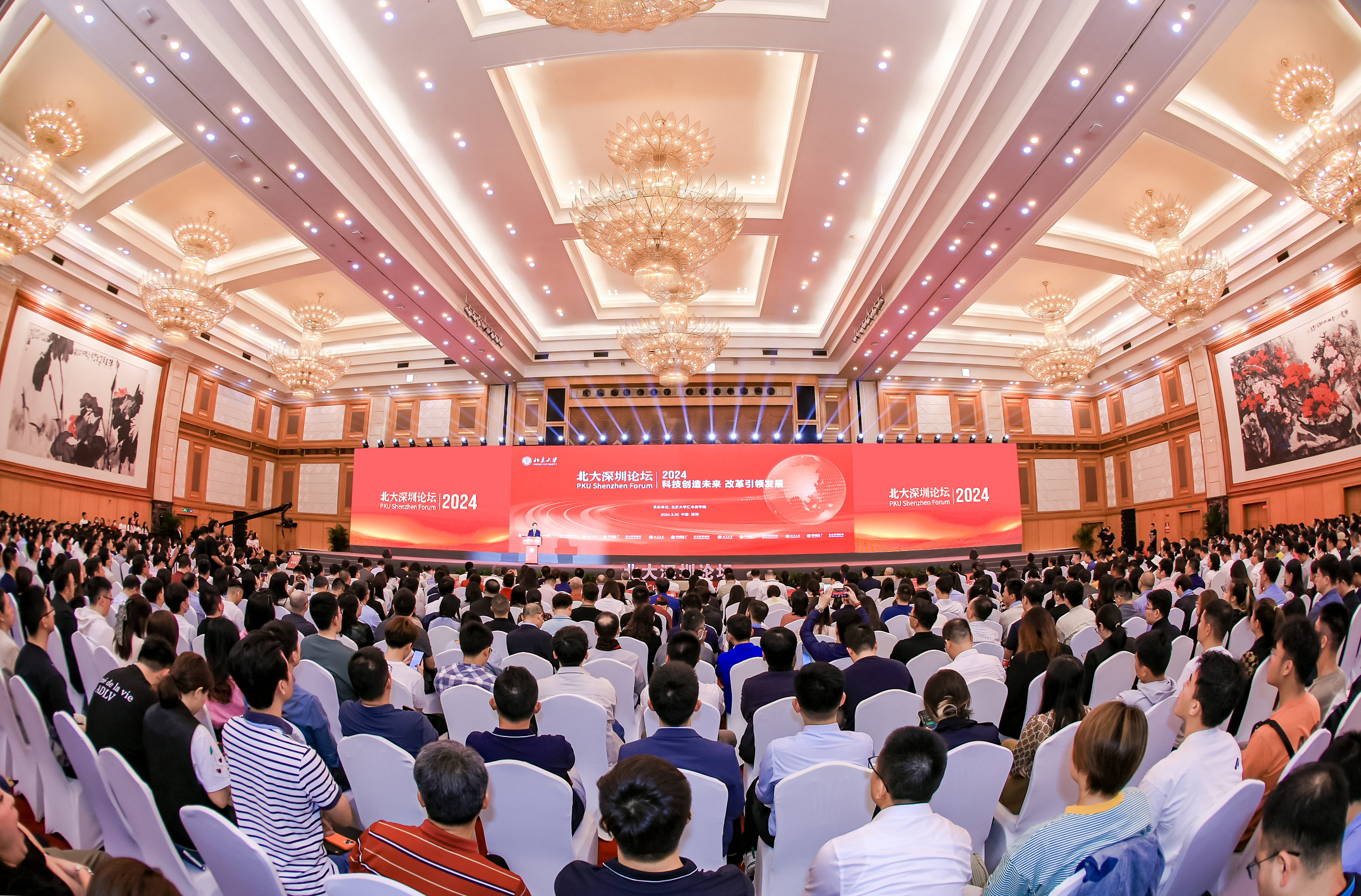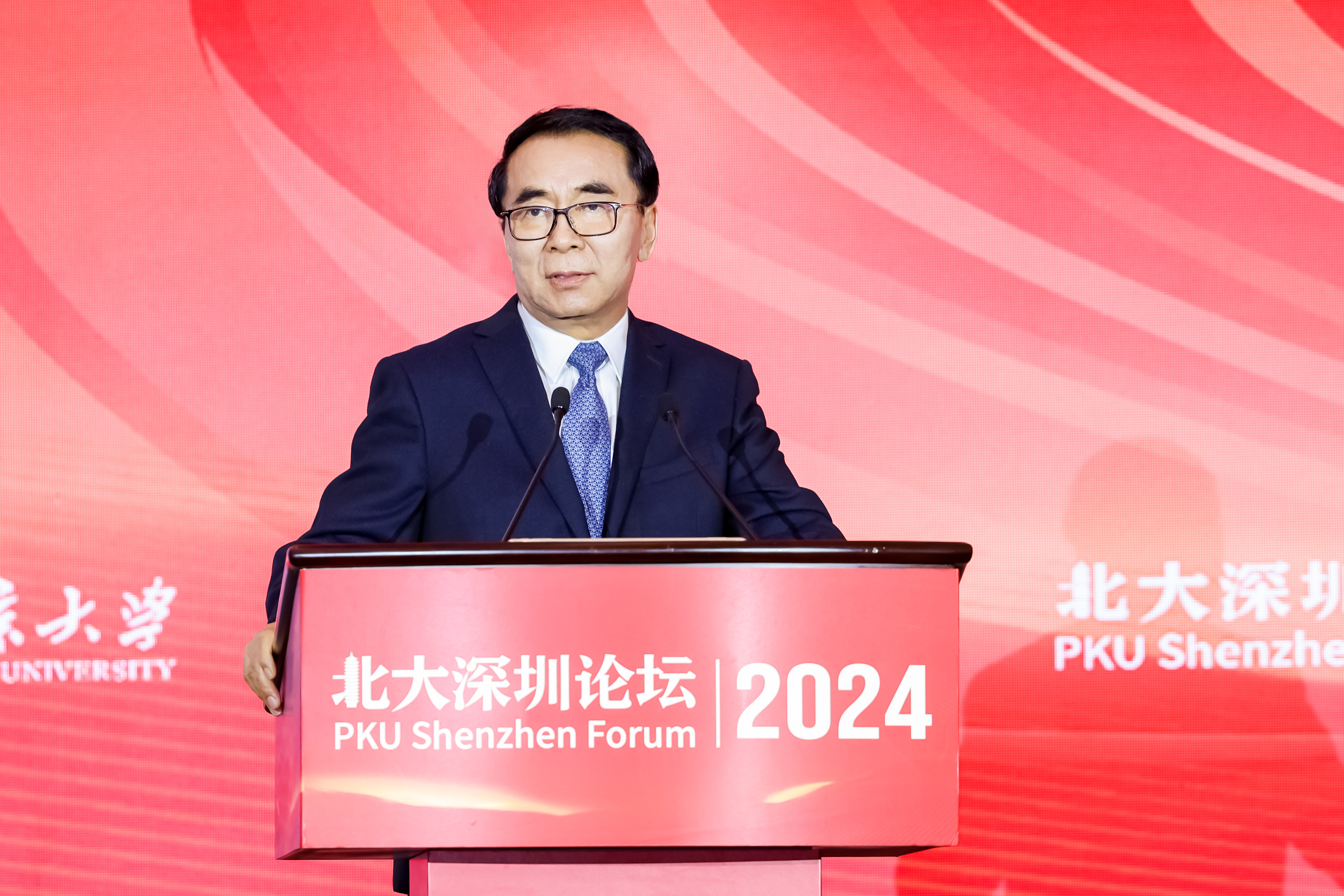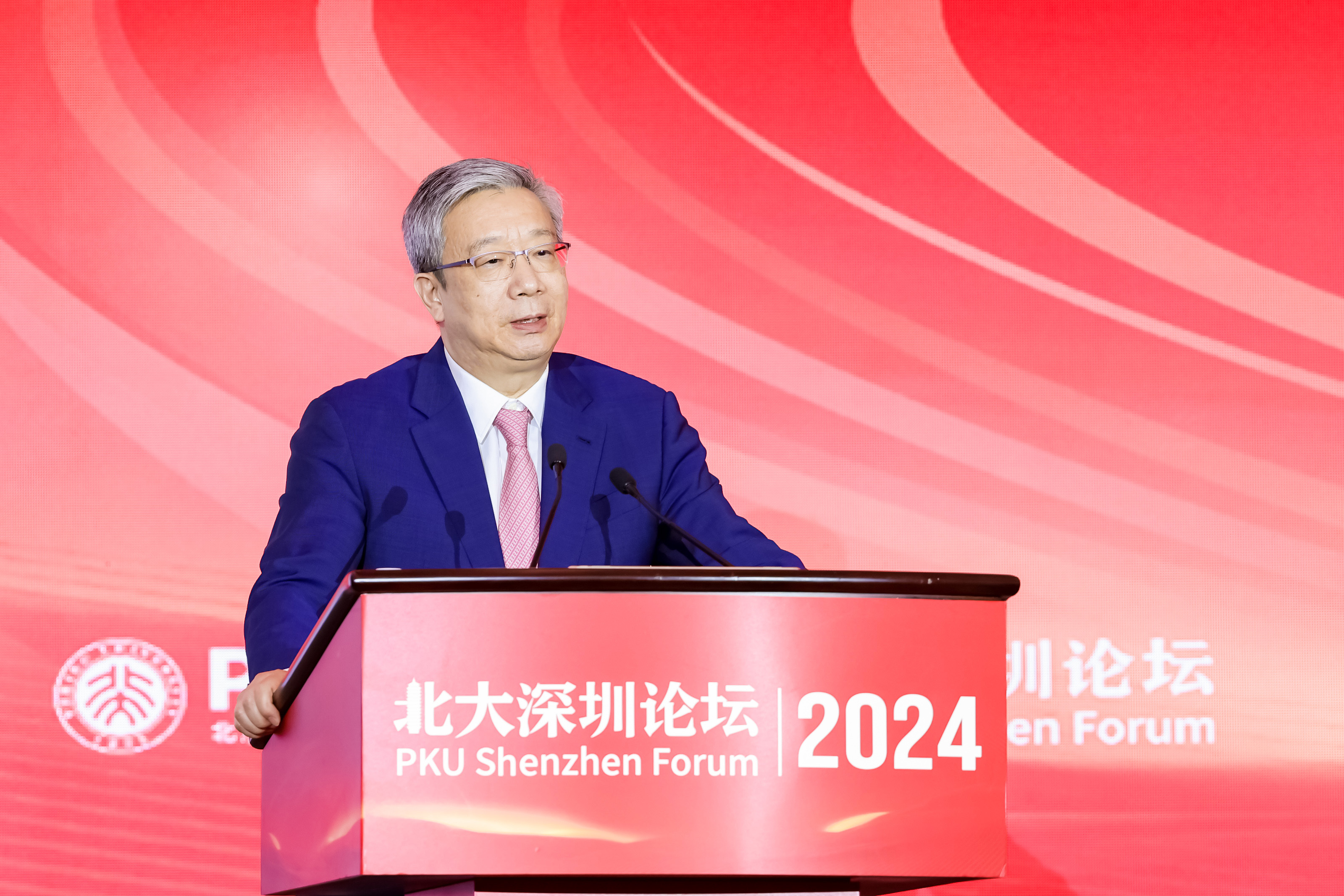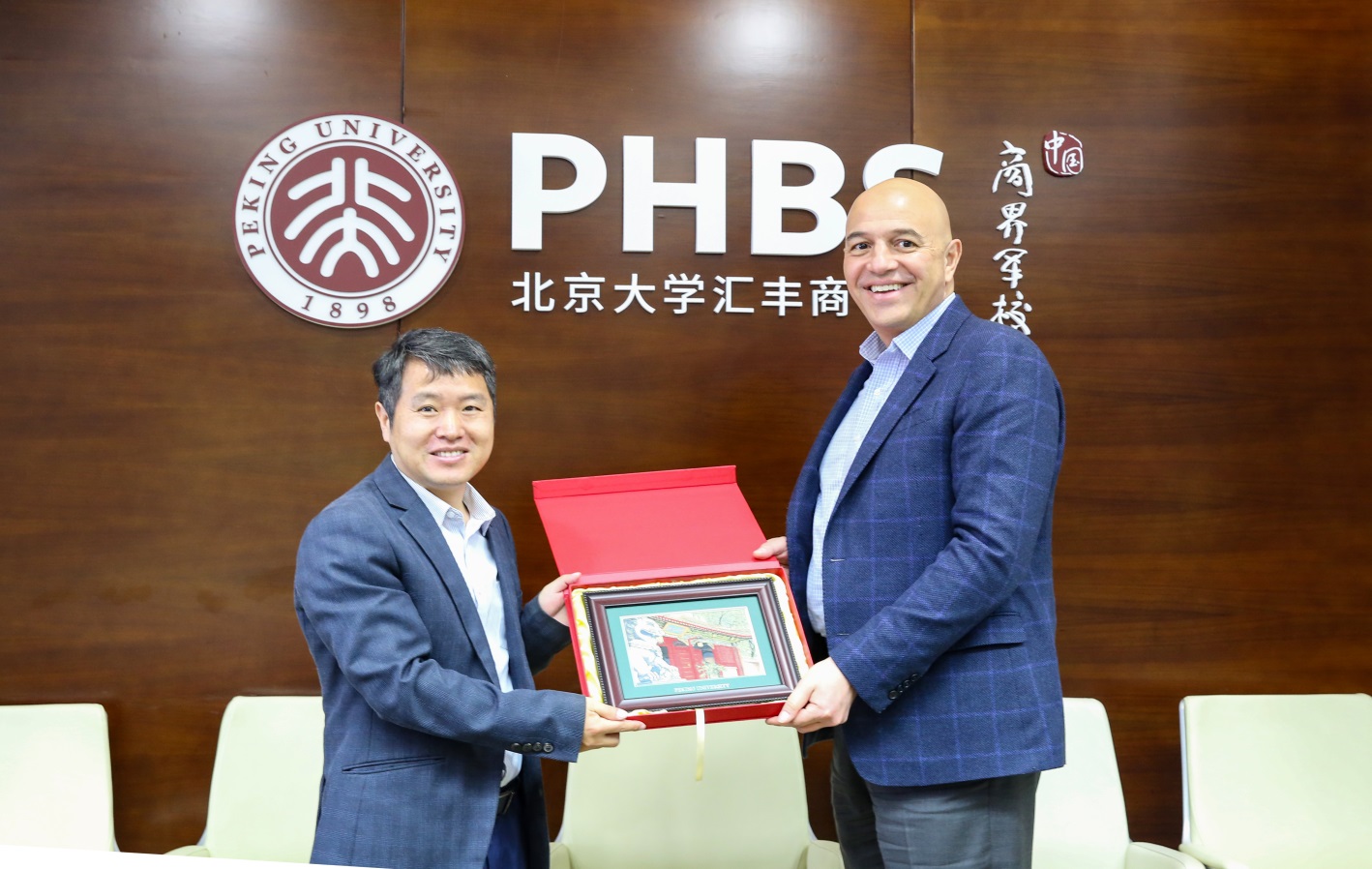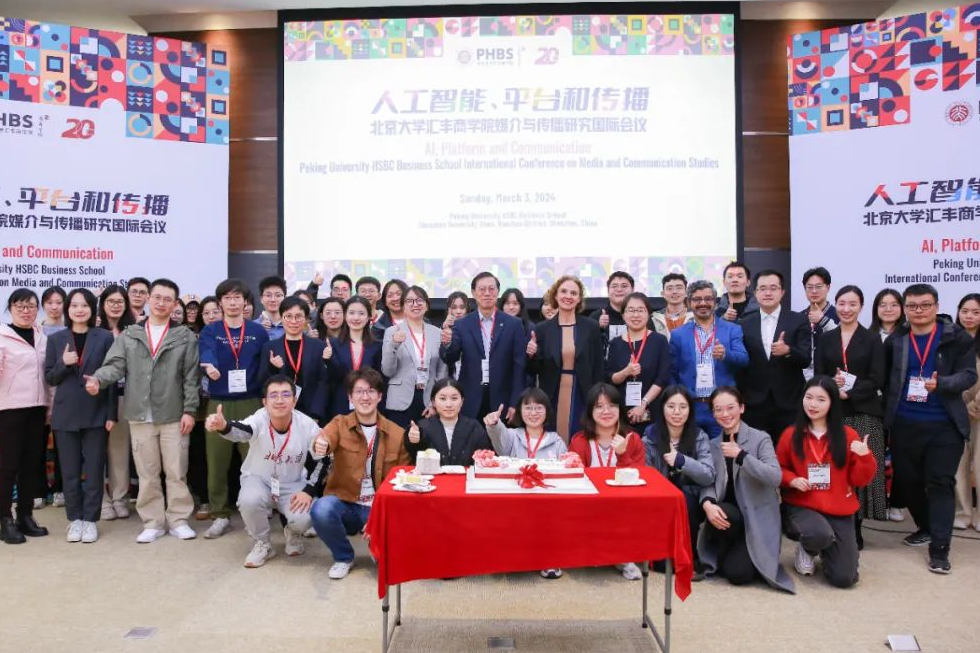The 2024 Peking University Shenzhen Forum, initiated by Peking University HSBC Business School (PHBS), was held on March 30. Themed "Technology Creates the Future, Reform Leads Development," the forum attracted more than a thousand participants, including renowned experts and scholars from the fields of economics, finance, technology, and international relations. They convened to delve into the latest technological advancements and offer valuable insights into China’s reform and development.
The opening of the PKU Shenzhen forum
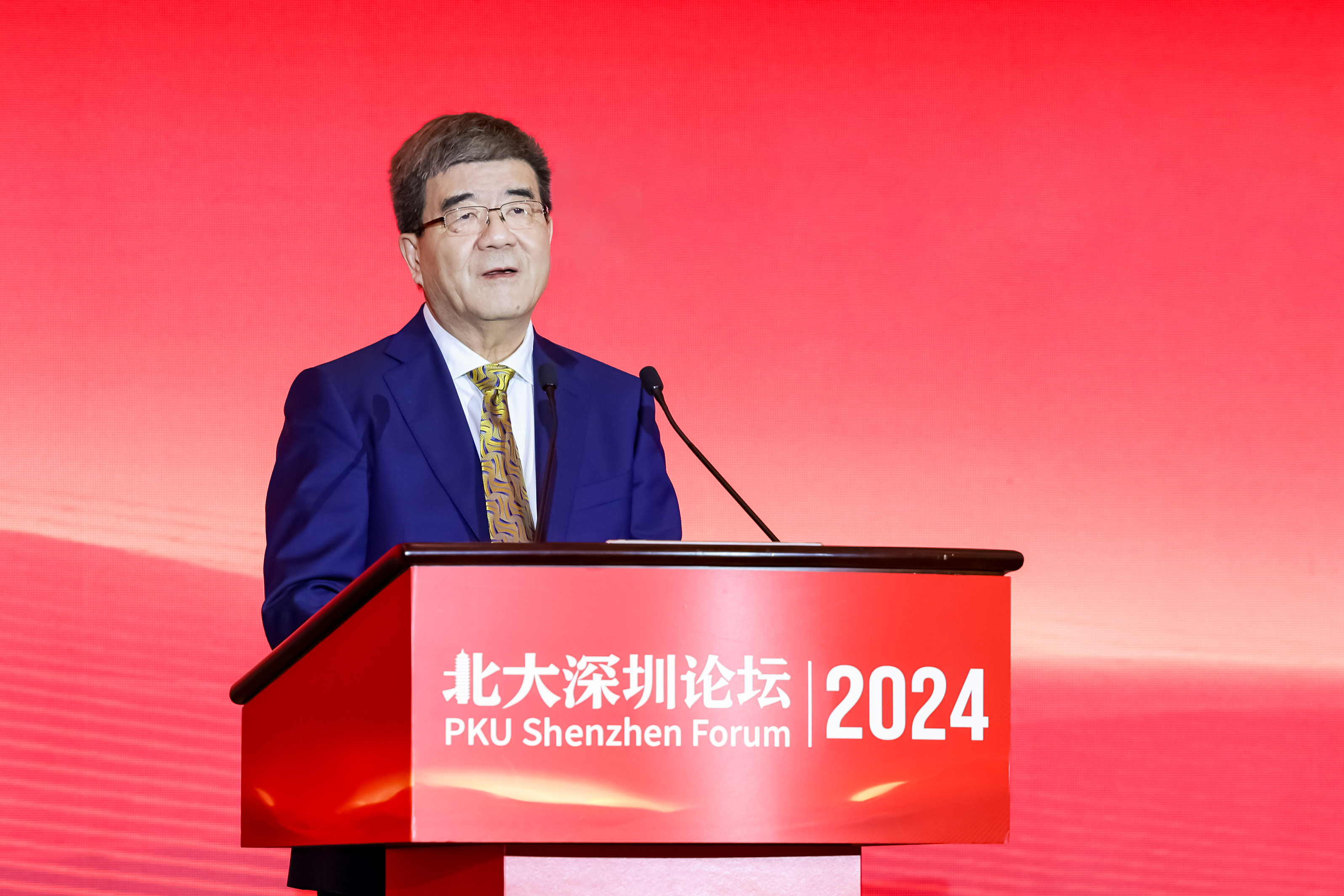
Hai Wen, Vice Chairman of Peking University Council (former Vice President) and Founding Dean of PHBS, presides over the forum
In his welcoming speech, Hai Wen noted that the 2024 PKU Shenzhen Forum has become more extensive than before, encompassing fields such as economics, technology, and international relations; and with a "cutting-edge and practical" focus, the high-level forum invited leading scholars from various fields to share forward-looking insights into the most concerned, pressing, and critical issues of this era.
Zhang Jin, Member of the Chinese Academy of Sciences, Member of the Standing Committee of the Party Committee of Peking University, Vice President of Peking University, and Chancellor of PKU Shenzhen Graduate School
In opening remarks, Zhang Jin emphasized Peking University's commitment to driving scientific and technological progress and social development. He hoped that PKU Shenzhen Forum would serve as a bridge between academic frontiers and Chinese practices. By integrating PKU’s wisdom with Shenzhen's reform and opening-up spirit, the forum aims to generate innovative ideas and plans that propel China's economic and social progress, ultimately strengthening national power and realizing national rejuvenation through modernization.
Bai Chunli, Honorary Chairman of the Presidium of the Academic Divisions of the Chinese Academy of Sciences, Honorary president of the University of Science and Technology of China and the University of Chinese Academy of Sciences, and Former President of the Chinese Academy of Sciences
In his keynote speech, "Technological Innovation and Industrial Development," Bai Chunli underscored the latest advancements in IT, life health, materials, and advanced manufacturing. He emphasized that with the new generation of information technology poised for significant breakthroughs, technological innovation could serve as a crucial factor shaping the global economy; and the digital economy, driven by "Internet+" and "Smart+," is also fostering new formats and models. Furthermore, he noted that AI, genomics, brain science, precision medicine, and new materials would profoundly influence future industries, social life, and economic growth; and advanced manufacturing and innovative technologies, coupled with key scientific infrastructure, could drive the growth of high-tech industries.
Yi Gang, Chairman of the China Finance Council and Former Governor of the People's Bank of China
In his keynote speech titled "Digital Finance and Privacy Protection," Yi Gang introduced the concept of digital finance and elaborated on the development of digital finance in China in four areas: mobile payment, mobile banking, personal credit reporting, and digital RMB. Yi pointed out that digital finance did not change finance's essence but enhanced its efficiency with inclusiveness, immediacy, and convenience. He suggested that facing the challenge of privacy protection brought by digital finance, the financial sector should adopt strategies, including adhering to the principle of minimal necessity in data handling, enforcing corresponding laws to safeguard privacy rights, and strengthening data protection design and risk assessment, to embrace the advent of the digital economy and digital finance era.
Jin Liqun, President and Chairman of the Board of Directors of the Asian Infrastructure Investment Bank (AIIB)
Jin Liqun delivered a keynote speech titled "Innovation Driving International Development Cooperation." He reviewed the background of the establishment of the AIIB and shared the innovative governance principles and cooperation innovations adopted by the AIIB, the world's first multilateral international financial institution initiated by China. Jin emphasized that the AIIB, in response to the new global economic landscape, will actively innovate and drive the development of regional and global economies towards openness, inclusivity, cooperation, mutual benefit, connectivity, innovation, and sustainability, as it has emerged as a prime example of practicing multilateralism and fostering international cooperation.
Jia Qingguo, Member of the Standing Committee of the 14th National Committee of the Chinese People's Political Consultative Conference, Professor and former Dean of the School of International Relations at Peking University
In his keynote speech, “Seeking Certainty in Uncertainty: The Current State and Future of China-US Relations,” Jia Qiongguo delved into the evolution of China-US relations, from confrontation to détente, and examined the reasons behind the tension and stabilization of their bilateral ties. He emphasized that China's emergence as a global power, along with the domestic political imperatives of both countries, has been significant contributors to the deterioration of the relations. Acknowledging the difficulties that lie ahead in China-US relations, Jia pointed out that both countries still share numerous common interests across various domains in the long term, leaving room for détente and the possibility of improved relations.
Zhou Qiren, Professor of the National School of Development at Peking University
Zhou Qiren gave a keynote speech, “What is the Foundation of Modern Economy." By referring to an article written by Jiang Yiwei, the former director of the Institute of Industrial Economics at the Chinese Academy of Social Sciences, he maintained that enterprises organized through contracts could meet the needs of expanding transactions and serve as the organizational backbone of the modern economy. Through examples, he showcased the pivotal role of modern enterprise systems in the US history, the Industrial Revolution, and China's technological development, highlighting the importance of contractual and mechanistic advancements in attracting diverse talents and driving technological transformation. He urged a return to fundamental economic principles and the re-establishment of modern economic foundations in the face of industrial competition and innovation challenges.
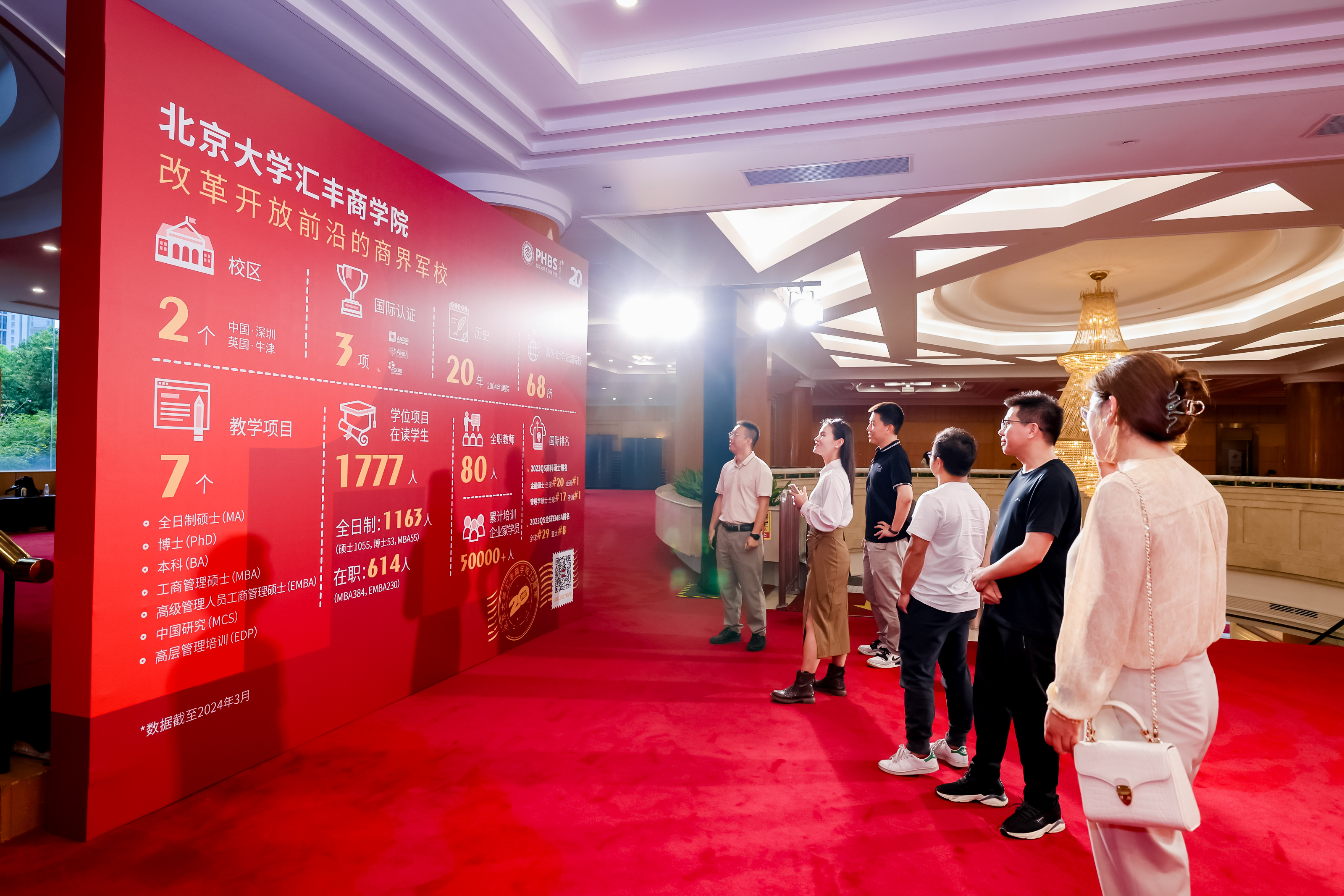
To mark the 20th anniversary of PHBS, special exhibition boards were set up outside the venue, attracting a large number of audiences.
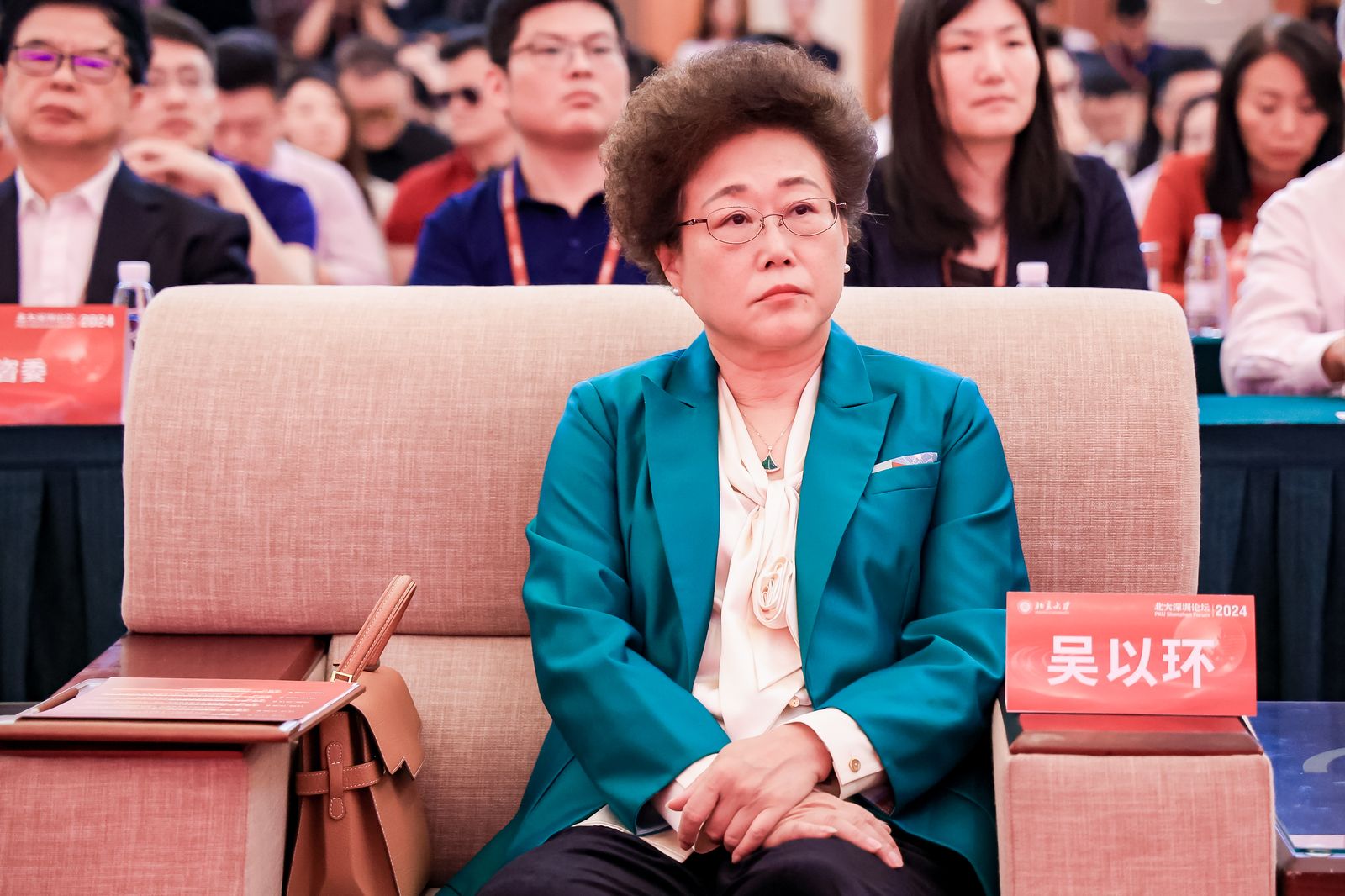 Wu Yihuan, Member of the National Committee of the Chinese People's Political Consultative Conference and Vice Chairman of the Shenzhen Municipal Committee of the Chinese People's Political Consultative Conference, attend the forum.
Wu Yihuan, Member of the National Committee of the Chinese People's Political Consultative Conference and Vice Chairman of the Shenzhen Municipal Committee of the Chinese People's Political Consultative Conference, attend the forum.
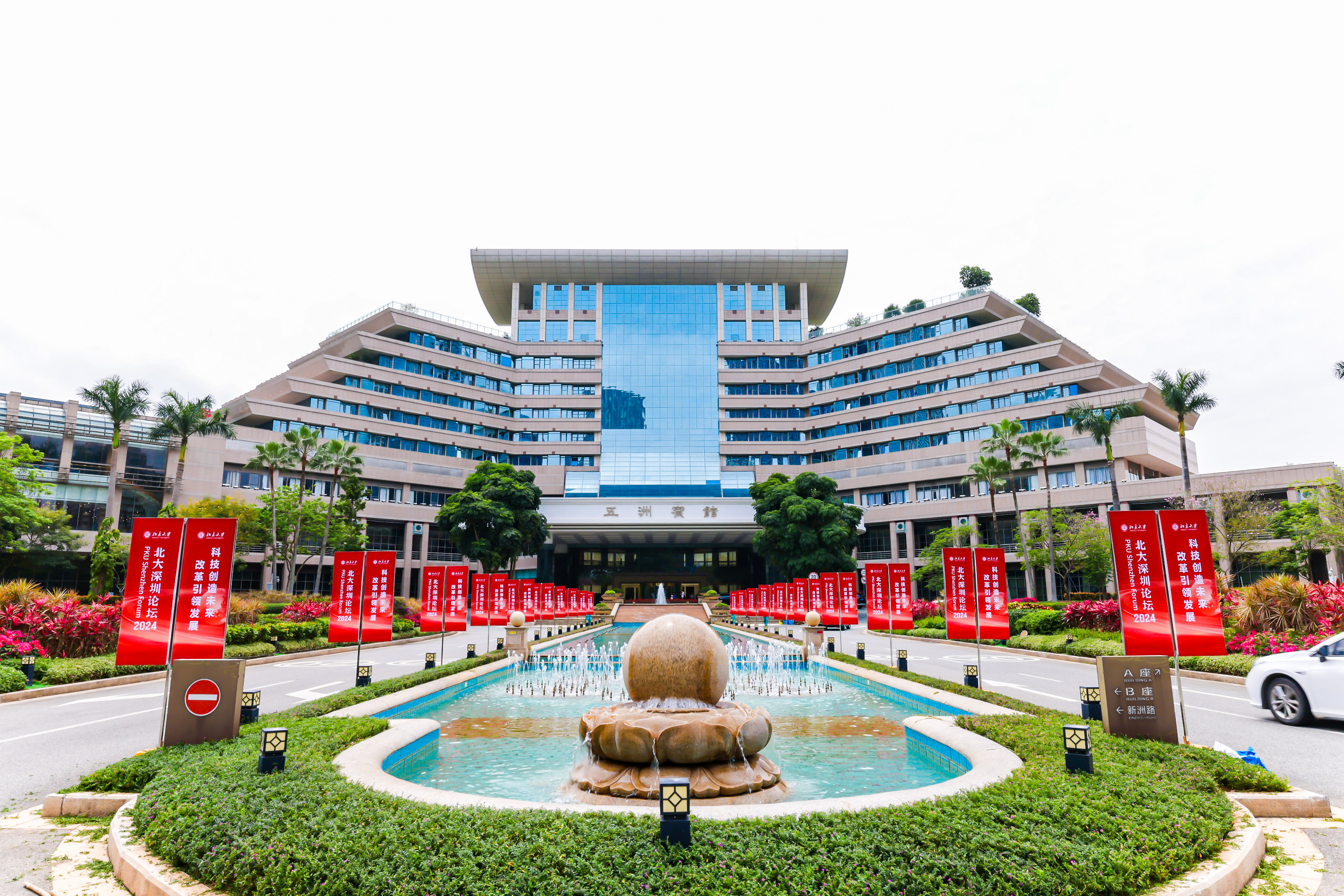
The forum venue
Initiated in 2021, the PKU Shenzhen Forum, known as a springtime intellectual extravaganza, aims to combine the profound academic tradition of PKU and the innovation genes of Shenzhen and will continue to establish a forward-looking, practical, high-end, and open communication platform for society and academia to advance the reform, opening up, and development of China's economy.
By Annie Jin





